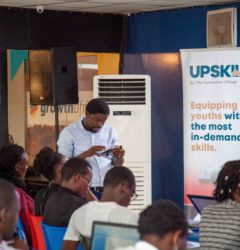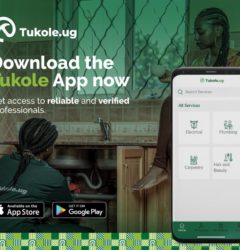22 Mar

The relationship between handymen and their customers is many times a dysfunctional one. Customers give tasks from a sense of deep trust. They assume their service providers will take it with utmost urgency. But alas! From one person to another, they hop, demanding a quality job to be done.
“Plumbers have too much waasi waasi. My plumber for instance has been saying he is on his way to fix my leaky pipes since last week but I am yet to see him,” Peter Ssemambo laments about the difficulty of dealing with labourers who do his home repairs.
This is reflective of the general affair between service providers and service consumers in the blue-collar industry here in Uganda. The relationship can be summarized as one rife with mistrust, inconsistency and unreliability. These vices are all summarized under a popular term often used on Kampala streets by disgruntled consumers, “Waasi Waasi.”
In attempts to unearth the root of this problem, we speak to an expert in the field, Gilbert Niwamanya. Niwamanya is the head of department- Plumbing & sheet metal and also Chairperson of Training Management Working group at Nakawa Vocational Institute he says, “The current Technical Vocational Education & Training (TVE) and Business Technical Vocational Education & Training curricula (BTVET) implementers lay their emphasis on core skills. There are segmented efforts in the training of attitude and behavioral skills that are needed by professionals while handling different levels of customers however, TVET and BTVET graduates lack the confidence to convince job panels, can’t easily demonstrate their competences to customers and these contribute to unemployment of those whose attitude is poor, whose skills in costing jobs are inadequate.”
These gaps that result into the strained relations between blue collar workers in the informal sector and their clients are what Tukole is here to repair.
Tukole, locally translated as “let’s work” is an online platform for networking between employers and employees in the blue-collar industry. It is Uganda’s connected marketplace that gives access to verified, reliable domestic and commercial professionals for manual labour. Services provided are plumbing, electrical, carpentry, cleaning, hairdressing and car washing.
The platform bridges the gap between individuals and companies sourcing for artisans, vocational, technically skilled and talented young women and men searching for job opportunities in the labor market. They improve the way they profile and price their services through the Tukole App. The ultimate goal of connecting workers or service providers and employers or service users on the platform is to create trust and buy-in for blue collar services online subsequently increasing employment opportunities for the skilled young women and men. Through classes, the young professionals are empowered on how to value their competencies and how to make monetary negotiations for different tasks at a fair price commensurate to work.
One of the people taking advantage of this offer is 23-year-old Arnold Ayebazibwe. The final year student doing a Bachelor’s degree in Electrical and Domestic installations at Kyambogo University is in pursuit of something that will give him an edge in the professional field over his fellow graduates from other institutions. Equipped with technical skills, the feeling is that learning about customer care and financial literacy in the Tukole classes is arming him with the dynamism needed out there in the field.
“At school, they think that customer care is something that is obvious to us but out in the field, it is a complex thing. Customers are different and you need skills to deal with them. The reason I keep returning to the Tukole classes is because I know that I am learning these special skills that they are not teaching me at school,” Ayebazibwe says.
The courses that Ayebazibwe and other 400 service providers on the Tukole Platform have attended are provided by Tukole on a need basis alongside other course units; from conflict resolution, team work, investment, savings, quality assurance, oral and written communication skills, safety, health, negotiation & pricing to reporting, financial planning and bookkeeping.
Supplementing the impact of these classes, Tukole Operations manager, Phyllis Nassuna says, “Our customer relations training is doing wonders. The customers appreciate the professionalism, which is quite rare in this sector. We can see a difference in the way in which service providers express themselves after going through the three weeks program that is market based.”
The fruits of these efforts are reflected in the feedback from the customers who have ordered for the various services on the platform from electricians, plumbers to hairdressers.
“Tukole services are affordable in comparison to the usual salons. The hairdresser was not only patient with me, they were very consistent and the response was quick,” Ethel Kiwanuka says.
A recent customer of the cleaning services, Sharon Kakai says, “It was the attention to detail for me. My house was cleaned with a novelty that I have not encountered before.” She adds, “Even more impressive was the pride that the service provider took in their work. They believe in themselves and their work.”
Encouraged by this feedback and reception, Tukole is spreading its wings to other regions outside of Kampala. Developments have kicked off in Jinja, Mbarara and in Gulu districts.
Joining is a piece of cake. If one has services to offer, they only need to visit the website, Tukole Ug, then signup under Service Providers. Those who need the Tukole services can also visit the Tukole website and click on Request A Service or call the establishment on 0774894194 that is also on Whatsapp.
With a dream to connect service providers to 100 jobs every week, service providers should ready themselves to cash in while clients on the platform can breathe a sigh of relief because “waasi waasi” in this sector is no more.









Recent Comments